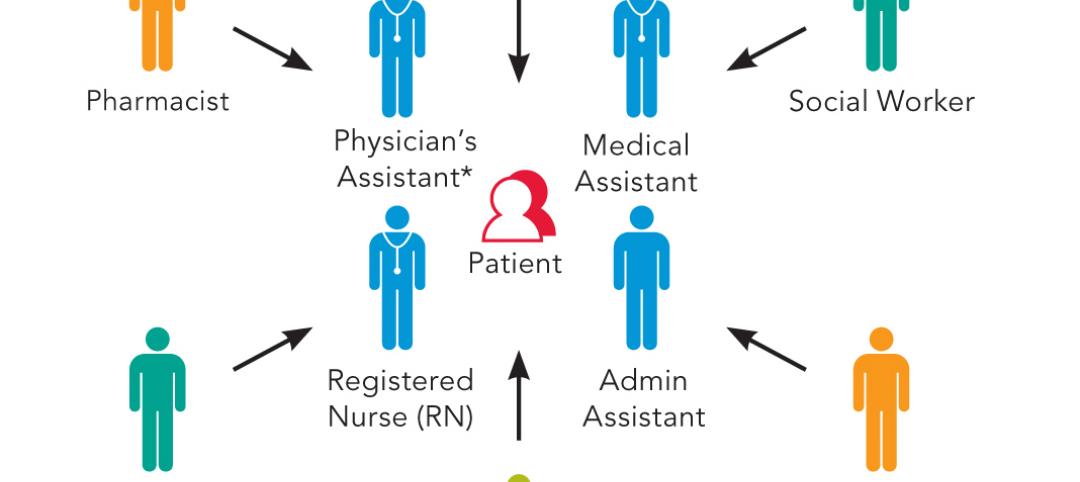In June, the U.S. Justice Department made headlines when it became the first federal agency to mandate implicit bias training for its employees. In the coming months, more than 23,000 agents from the ATF, DEA, FBI, and U.S. Marshals Service, and some 5,800 prosecutors, will receive the science-based coaching.
The goal is to better understand the “hidden,” or unconscious, characterizations and stereotypes—particularly pertaining to gender, nationality, social class, and race—that unknowingly affect agents’ decisions and actions in law enforcement situations. The Justice Dept. wants its employees to become more aware of their subconscious prejudices and learn how to shun them altogether.
Skeptics view the move as a knee-jerk reaction to the headline-grabbing, riot-sparking police shootings in Baton Rouge, La., Chicago, Cleveland, Ferguson, Mo., and North Charleston, S.C. But Justice Dept. officials cite successful implicit bias training programs at the local law enforcement level—in Baltimore, Los Angeles, New Orleans, New York City, and Seattle, to name a few—as the impetus for the directive.
“This program has been so well-received by our state and local counterparts, we thought it was something we should be offering to our federal agents, frankly, to get our own house in order,” Deputy Attorney General Sally Yates told Reuters.
Before writing off implicit bias education as the 21st century’s version of sensitivity training, consider this: Some of the world’s largest and most progressive companies—including Coca-Cola, Facebook, and Google—have implemented formal unconscious bias training programs. And other corporate and tech giants—Apple and Intel included—have invested heavily in diversity and inclusion initiatives.
These companies are tapping into the latest research in psychology and sociology not only to advance their diversity and inclusion efforts when it comes to hiring, promoting, compensation, and high-performance teaming, but also to gain a better understanding of the tendencies of their employees, colleagues, and customers. In short, they believe diversity and inclusion make good business sense, when done right.
“It’s not enough just to throw people together,” says diversity consultant and author Howard Ross. “People need to learn how to interact with each other appropriately. They need to learn that the more diversity we have, the more work we have to do.”
Ross says implicit bias impacts almost all facets of business: hiring, recruitment, mentoring, performance reviews, supervisory decisions, client service, marketing. It affects how business professionals view their market: what they see and hear, what they don’t see and hear, how they solve problems, how they interpret situations, how they set norms and expectations.
In November, at BD+C’s first annual Women in Design+Construction Conference in Dana Point, Calif., implicit bias expert Sally Jue, of consulting firm Cook Ross, will explore ways that unconscious bias affects the AEC industry, particularly women in the profession. Jue will lead a talk and workshop in which participants will examine their own background and identities so that they can interact more authentically with their employees, colleagues, clients, family, and friends.
For more on the WiD+C Conference, visit: www.BDCnetwork.com/WIDC.
David Barista, Editorial Director
dbarista@sgcmail.com
Related Stories
| Nov 26, 2014
USITT Selects Bahrain National Theatre for Honor Award
The Bahrain National Theatre will be recognized with an Honor Award by the United States Institute for Theatre Technology (USITT) in 2015.
| Nov 26, 2014
How the 'maker culture' brings the power of design to life
Most people affiliate the maker culture with metal working, welding, ceramics, glass blowing, painting, and soldering. But it also includes coding and online content creation, writes Gensler’s Douglas Wittnebel.
| Nov 26, 2014
U.S. Steel decides to stay in Pittsburgh, plans new HQ near Penguins arena
The giant steelmaker has agreed to move into a new headquarters that is slated to be part of a major redevelopment.
Sponsored | | Nov 26, 2014
It’s time to start trusting your employees more
A recent study published in the journal Psychological Science revealed that employees were 26% more satisfied in their roles when they had positions of power. SPONSORED CONTENT
Sponsored | | Nov 26, 2014
What’s in a coating?
A beautiful coating on metal products can make a strong statement, whether used on a high-end commercial project or an industrial building. SPONSORED CONTENT
Sponsored | | Nov 26, 2014
Virtual reality in 3D models, iPhone thermal imaging: Inside one very cool tech toybox
A little over a year ago, I embarked on a search to find individuals in the AEC space who were putting new hardware to work in the field.
| Nov 25, 2014
Behnisch Architekten unveils design for energy-positive building in Boston
The multi-use building for Artists For Humanity that is slated to be the largest energy positive commercial building in New England.
| Nov 25, 2014
Study: 85% of employees dissatisfied with their office environment
A vast majority of office workers feel open floor plans cause multiple distractions and that more private spaces are needed in today's offices, according to a new study by Steelcase and research firm IPSOS.
| Nov 25, 2014
Emerging design and operation strategies for the ambulatory team in transition
As healthcare systems shift their care models to be more responsive to patient-centered care, ambulatory care teams need to be positioned to operate efficiently in their everyday work environments, write CannonDesign Health Practice leaders Tonia Burnette and Mike Pukszta.
| Nov 24, 2014
Midsize construction firms see a brighter business horizon
Uncertainty about government spending clouds an otherwise positive economic outlook among 59 middle market construction firms polled recently by GE Capital.
















